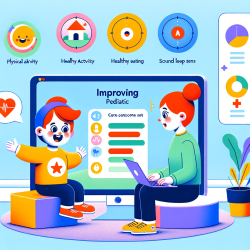Introduction
In the digital age, the importance of maintaining accurate, complete, and timely health records cannot be overstated. A recent study titled At the frontlines of digitisation: a qualitative study on the challenges and opportunities in maintaining accurate, complete and timely digital health records in India’s government health system offers valuable insights into the challenges and opportunities in digitizing health records. This blog explores how practitioners can leverage these findings to improve their skills and outcomes in maintaining digital health records.
Understanding the Challenges
The study highlights several challenges faced by frontline health workers (FLHWs) in India, including delays in data entry, inaccuracies in mobile numbers, and a lack of incentives for ensuring data accuracy. These challenges are compounded by the slow transition from paper to digital records and the complexities of gathering required documents from beneficiaries.
Opportunities for Improvement
Despite these challenges, the study identifies several opportunities for improving the accuracy and timeliness of digital health records:
- Training and Support: Providing comprehensive training for FLHWs on the importance of data accuracy and how to effectively use digital systems.
- Supportive Supervision: Implementing supportive supervision that focuses on both completeness and accuracy of records.
- User-Friendly Data Processes: Developing intuitive and user-friendly digital systems that streamline data entry and reduce the likelihood of errors.
Implications for Practitioners
For practitioners, these findings underscore the importance of focusing on data accuracy and the potential benefits of digitization. By prioritizing training and supportive supervision, practitioners can enhance their skills in maintaining accurate digital health records. Additionally, adopting user-friendly data processes can significantly improve the efficiency and accuracy of data entry.
Encouraging Further Research
While the study provides valuable insights, it also highlights the need for further research into the specific challenges faced by different populations and the effectiveness of various interventions. Practitioners are encouraged to engage in ongoing research and collaboration to develop innovative solutions that address the unique challenges of digitizing health records in diverse settings.
Conclusion
The transition to digital health records presents both challenges and opportunities. By leveraging the insights from this study, practitioners can improve their skills and contribute to the development of more accurate and efficient digital health systems. For those interested in delving deeper into the research, the original paper offers a comprehensive analysis of the challenges and opportunities in digitizing health records in India's government health system.










